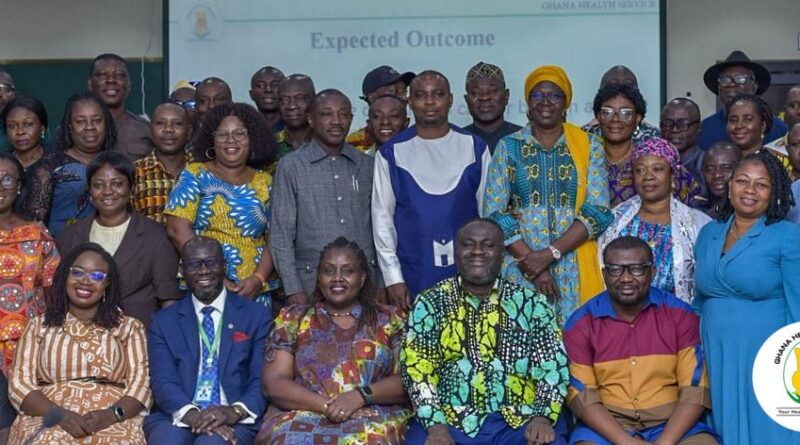HPV vaccination in Ghana targets girls aged 9 to 14
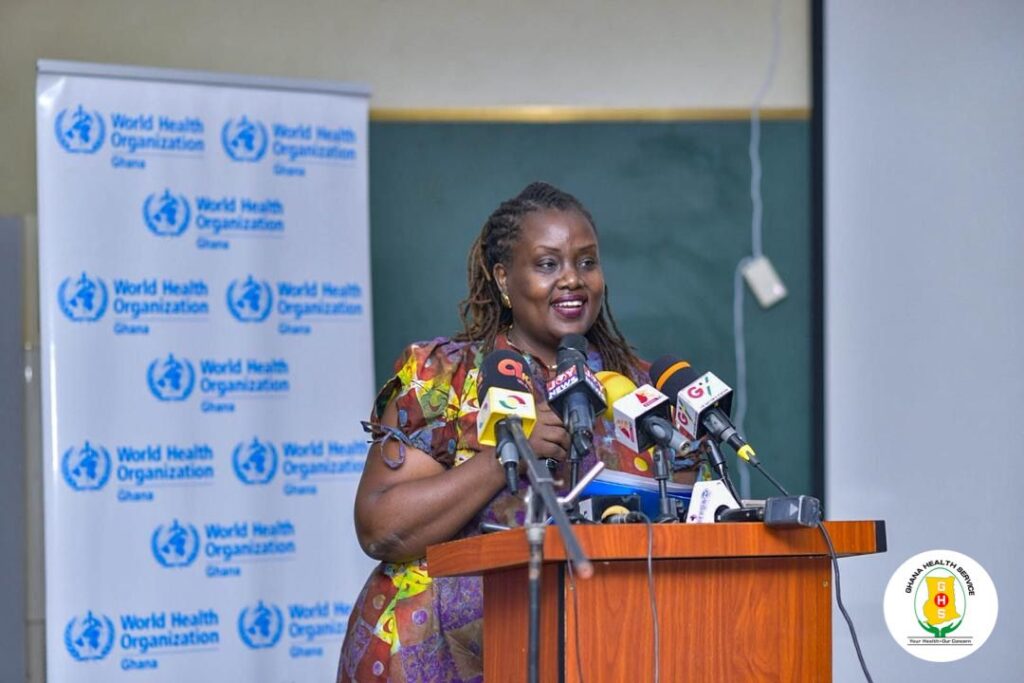
HPV vaccination in Ghana has launched with urgency, placing the country among over 140 nations combating cervical cancer through routine immunisation. This major health campaign focuses on girls aged 9 to 14, offering them early protection before exposure to the virus.
Each year, over 600,000 women develop cervical cancer. Developing countries carry the highest burden. Shockingly, nine out of ten cervical cancer deaths happen in poorer nations, especially across Africa, Central America, and Southeast Asia.
In sub-Saharan Africa, late diagnoses remain a serious issue. Over 70 percent of cases emerge in advanced stages, which reduces treatment success and increases both emotional and financial costs.
Ghana’s new effort signals a shift. By targeting girls early, the country aims to prevent the disease rather than react to it later. Dr. Fiona Braka, WHO Ghana’s Representative, highlighted the vaccine’s importance during a stakeholder event in Kumasi.
She explained that in countries with limited access to screening or treatment, vaccination becomes the first line of defense. It allows healthcare systems to act preemptively and gives girls the chance to live cancer-free.
The event gathered regional directors of education and School Health Education Programme coordinators from across Ghana. Their goal was simple—mobilize the schools and build awareness before the vaccine rollout.
Ghana’s campaign builds on existing school-based health initiatives. These include the Girls’ Iron-Folate Supplementation (GIFTS) programme and treatments for neglected tropical diseases. These efforts show that education and health can work together to create lasting impact.
Dr. Braka stressed that using the national immunisation platform ensures equity. Every girl, regardless of her background or region, can access this vaccine at no cost. However, that promise only works if public health teams reach every school and community.
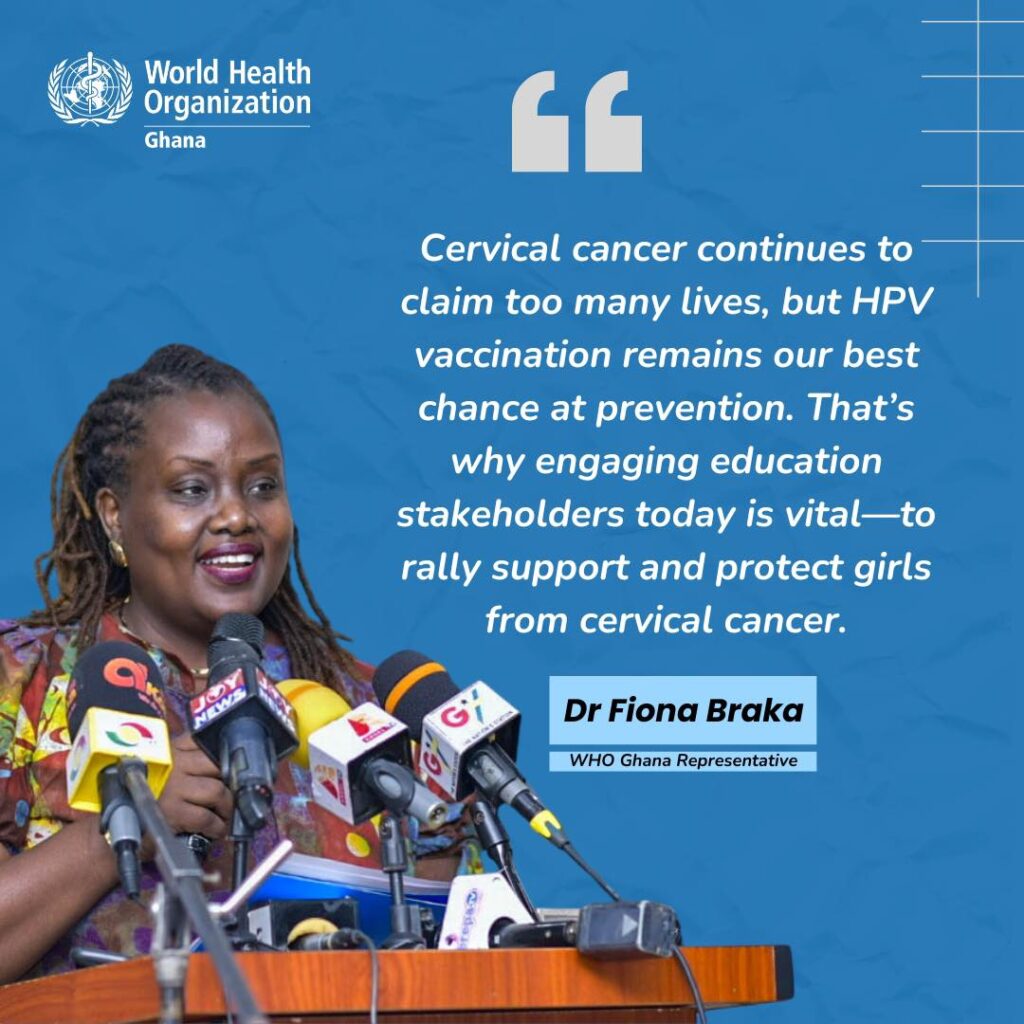
Dr. Fred Adomako-Boateng, the Ashanti Regional Director of Health Services, described the vaccine as a powerful shield. He urged schools to support the rollout fully by providing facts, dispelling rumors, and helping parents understand the benefits.
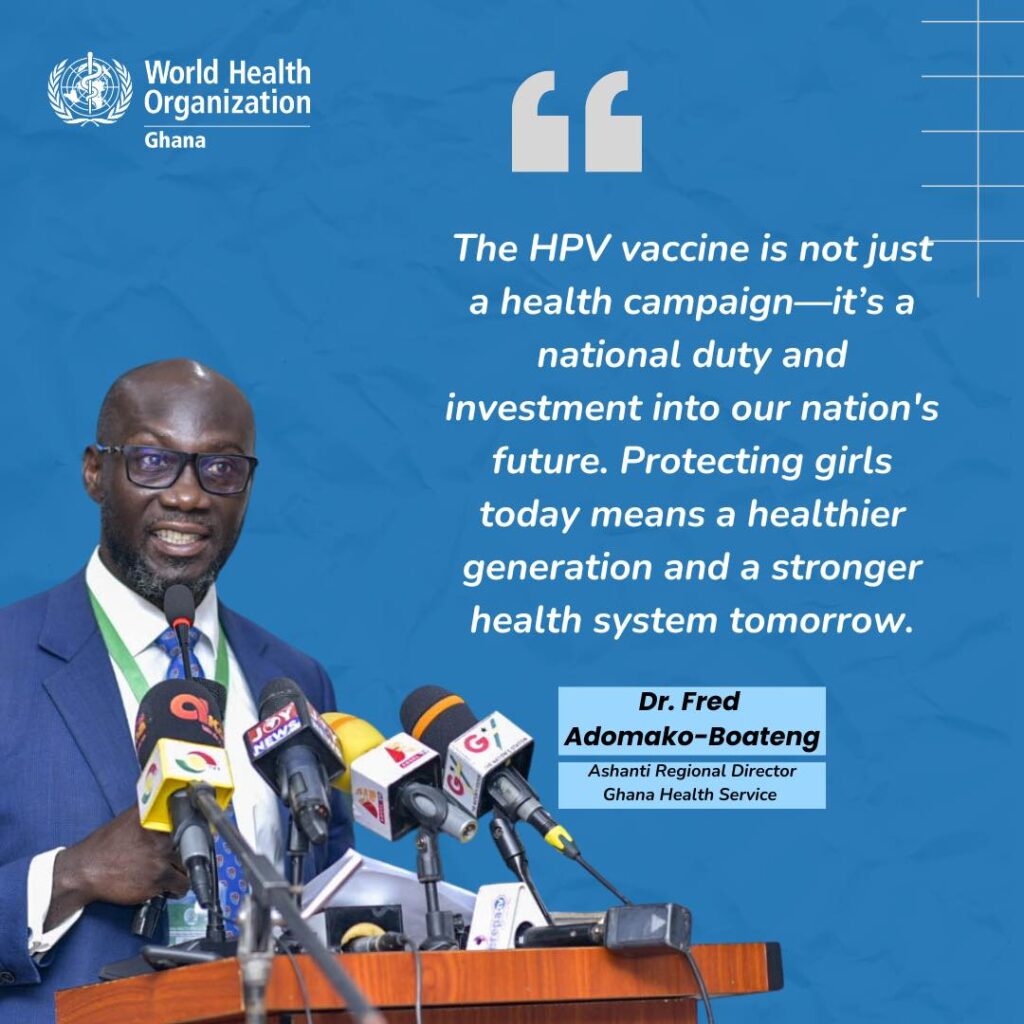
“Let’s not leave any girl behind,” he said. “Help us inform them, support them, and protect them.”
Meanwhile, Dr. William Kwame Appiah Amankrah, Ashanti Regional Director of the Ghana Education Service, described the campaign as more than a health initiative. For him, this vaccine represents an investment in the nation’s future.
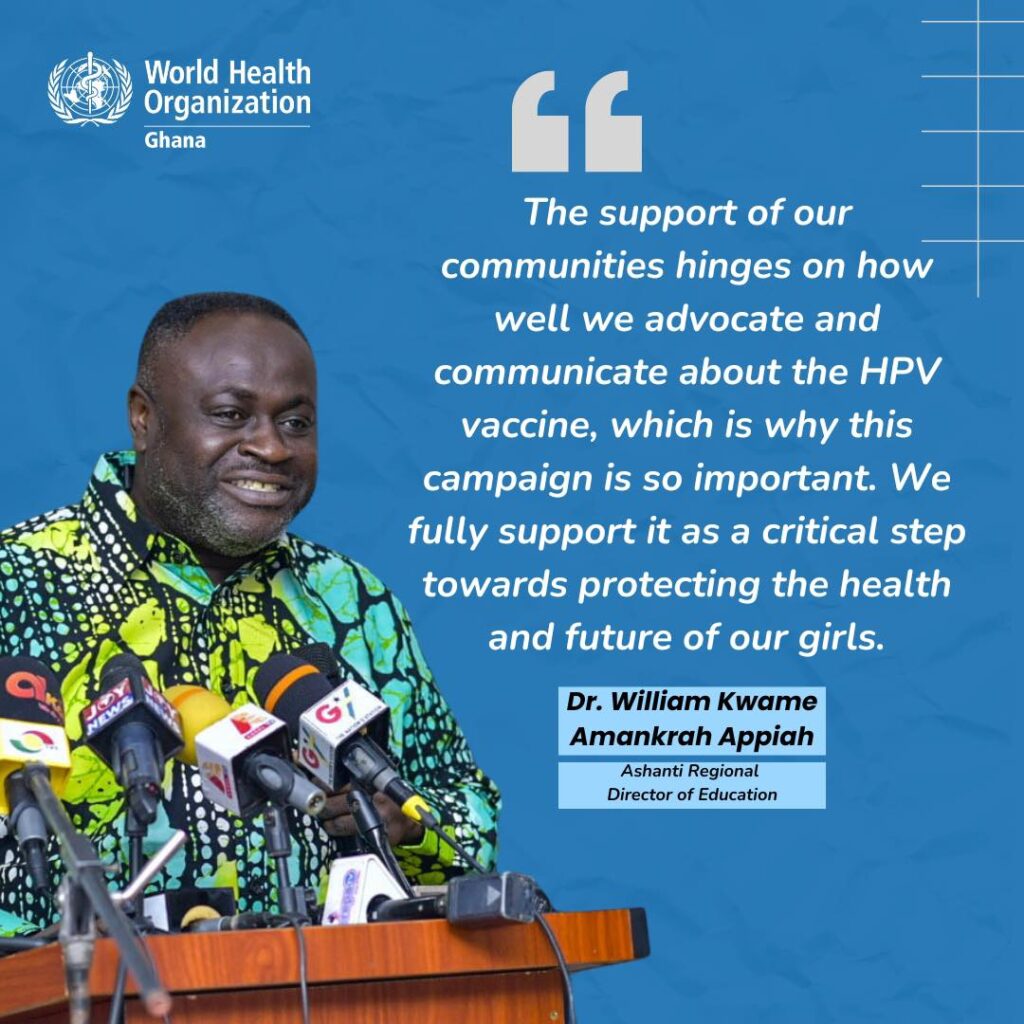
He stated that healthy girls grow into empowered women—women who build economies, lead families, and shape the country’s development.
Globally, HPV vaccination aligns with Sustainable Development Goal 3.4. That target pushes for a one-third reduction in premature deaths from non-communicable diseases by 2030.
By introducing the vaccine now, Ghana is moving decisively toward that goal. But more importantly, it is offering hope to a generation of girls who deserve better. With continued support from schools, families, and healthcare workers, that hope will turn into protection—one vaccinated girl at a time.

